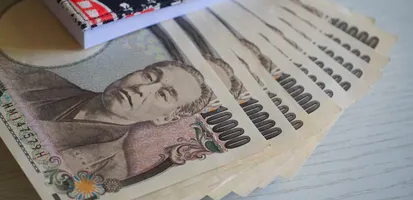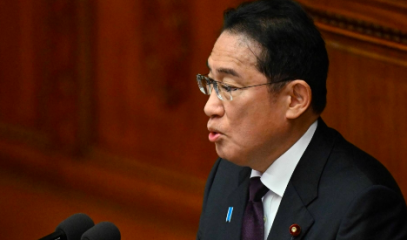The dark side of the Japanese economy: from public debt to political crisis
Despite the fact that Japan's public debt exceeds the size of the real economy by 2.5 times, the government has allocated a record budget for the current fiscal year, with unrealistic targets for public spending. All this while Premier Kishida's party is going through a political crisis stemming from the Liberal Democratic Party's irregular funds scandal,
Tokyo (AsiaNews/Agencies) - Japan has been going through a deep economic crisis for some time now. According to several Japanese political and economic analysts, one of the keys to understanding it is to closely observe the fall of the Liberal Democratic Party (LDP) faction previously led by the late former Prime Minister Shinzo Abe.
Already in his second term, Abe - who once called the Bank of Japan 'a subsidiary of the Japanese government' - was one of the most vocal advocates of the 'expansionary' (Abenomics) policy of state spending, used as a tool to revive a Japanese economy that had stagnated since the late 1990s.
That vision has led the same 'Abe faction' - of which the current premier Fumio Kishida is also a member - to have to raise taxes to cover the explosion in government spending, starting with onerous defence spending at the end of 2022.
The situation was further aggravated by the scandal over political fund-raising that shook the ruling party and led to the resignation of four ministers of the party led by 2021 Kishida, and brought to its knees the faction, made up of more than 90 members and destined to disband, which from Abe onwards has carried out this political-economic vision.
Despite this, it is still the LDP that is discussing ways to rebalance the nation's collapsing finances. In early February, the economic committee presented a plan to improve the primary balance - i.e. the difference between government revenue and expenditure, excluding interest payments - and to reduce government spending.
According to LDP MP Keisuke Suzuki, who is also acting secretary general of the committee, 'unless the party leadership and the government show a strong determination to balance finances, it is unlikely that things will change soon'. To back up his words is the relegation of Japan's economy to fourth place in the world rankings, behind even recession-ridden Germany.
The current draft budget presented estimates that in the next fiscal year, which begins in April, Tokyo's government spending will reach 112 trillion yen (4 billion), down slightly from last year's all-time high of 114 trillion yen, but due to reduced funding for COVID-19.
Most of this money, however, is earmarked to cover debt costs, explains Gabriele Ninivaggi political analyst at The Japan Times. Overall, the government will still rely on deficit spending for almost a third of the total, while the aftermath and delays in the reconstruction of the Noto earthquake on 1 January have forced the government to double its estimate of the amount of reserve funds required.
Finance Minister Shunichi Suzuki announced that public debt at the end of last year had reached a record level of 1.2 quadrillion yen. More than 2.5 times the size of Japan's real economy.
Nevertheless, with inflation on the rise, wages on the rise and exports booming, now is not the time for the government to curb public spending, but rather to stimulate consumption and investment. The roots of Japan's dependence on debt go back to the 1990s. After the bursting of the economic bubble, slowing economic growth and a rapidly greying demographic society came a period of declining tax revenues and rising social spending that worsened the state of the country's coffers.
"I believe that the government's overhaul of tax systems is insufficient to cope with the necessary structural changes imposed by slow stagnant growth and the population's demographic decline," said economist Takahide Kiuchi.
He adds: 'Voters lack a thorough understanding of the country's finances, which gives the government an incentive to pursue populist economic policies.
In fact, the increase in deficit spending remains difficult to understand'. What also stands in the way of concrete steps towards deficit reduction "is the close relationship between private interests and elected political officials," says acting secretary general of the government's economic committee Keisuke Suzuki. "In areas where the government could potentially cut spending, these vested interests in related productive sectors often show resistance to any change in the status quo."
"The lobby in favour of big government spending, and consequently higher debt, remains strong, and Kishida cannot afford to antagonise what is still a large constituency within the party, especially ahead of the LDP presidential election in September. In the long run, however,' the Times analyst concludes, 'a large dose of political astuteness will be required to satisfy both parties without getting burned.
14/10/2022 16:54
16/09/2020 16:39
28/08/2020 09:32








.png)










